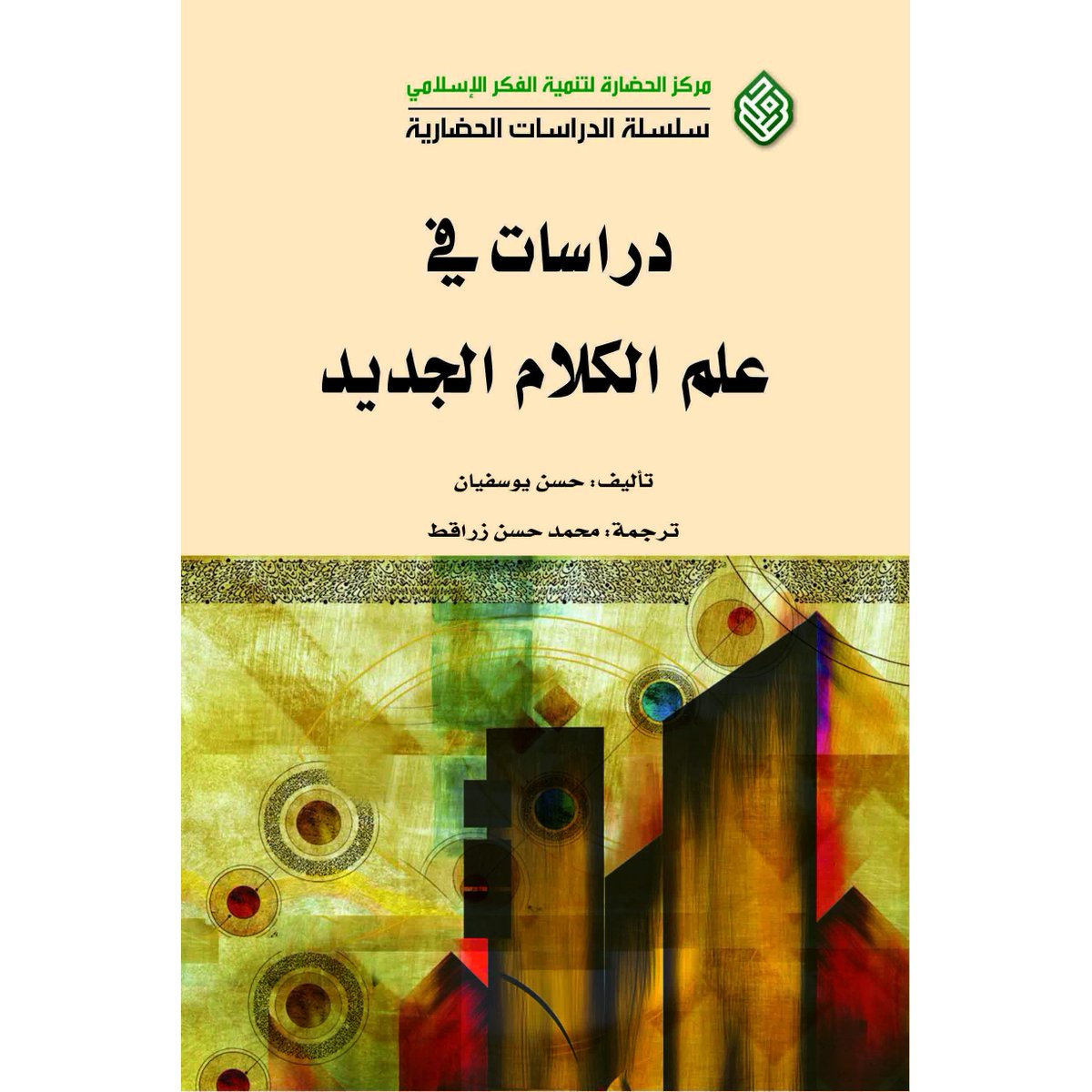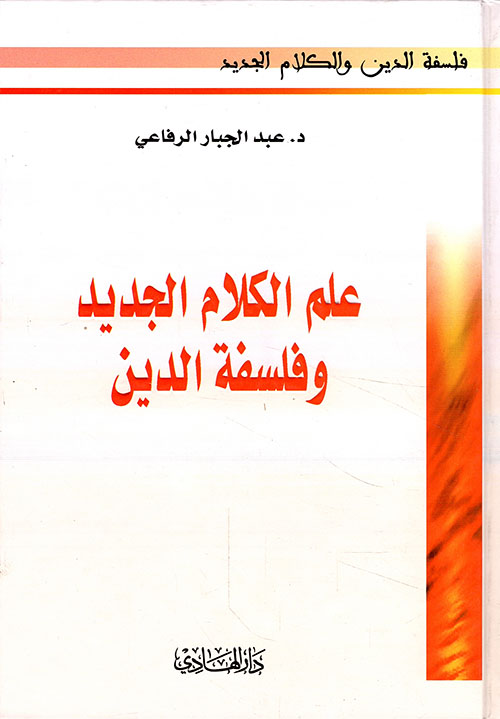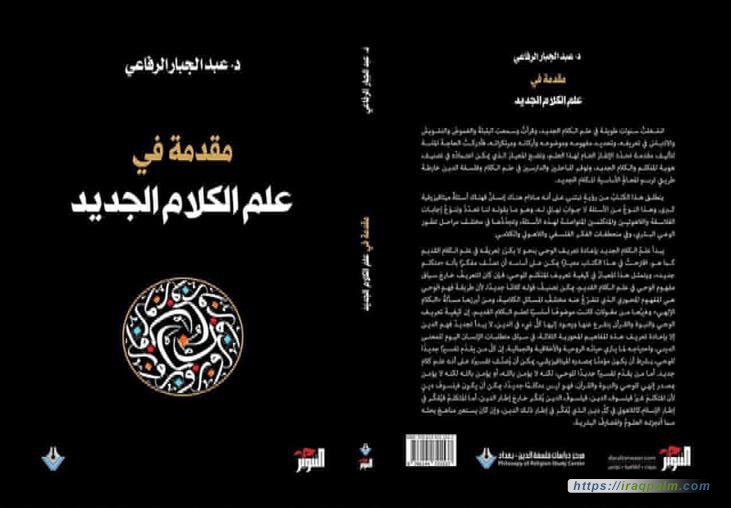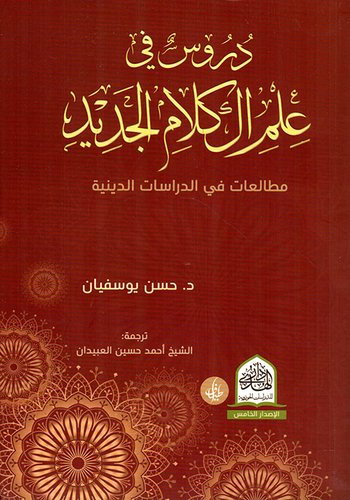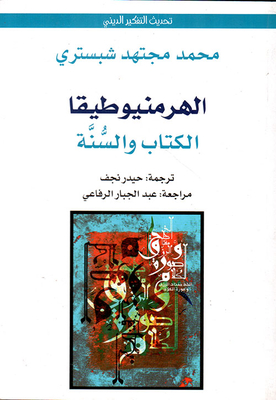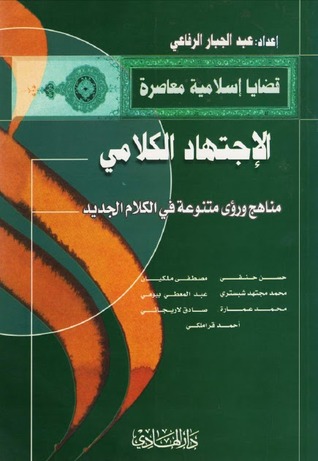There& #39;s renewed interest in ʿIlm al-Kalām al-Jadīd (علم الكلام الجديد) among academic colleagues. While I am in awe of the medieval masters and their penetrating insights in a range of philosophical topics, the new theologians aren& #39;t that bad. A thread on New Kalām. 1/
The New Kalām marks a conscious and earnest effort to depart from the Old Kalām in light of the advent of modernity and advancements in science and philosophy. Kalām is theology and much more. It& #39;s God-speak in all its forms 2/ https://twitter.com/bdaiwi_historia/status/1316167756333621248?s=20">https://twitter.com/bdaiwi_hi...
So what is New Kalām? It& #39;s not quite a distinct tradition yet, but its general contours can found across the range of New Theologians in the Muslim world. New Kalām folk consider themselves devout Muslims committed to reforming old theologies to meet new challenges. 3/
The earliest traces of a new theological thinking or religious orientation that later became New Kalām can be found in the writings of 19th C Indian thinkers and more solidly in 20th Iranian reformists. 4/
Typically, New Theologians turned their focus on reforming old epistemologies and reorienting the old traditions of Arabic philosophy and Islamic theology. Shiblī Nuʿmānī (d. 1914) was probably first in his use of ʿilm al-kalām al-jadīd, in the title of his work, where he made 5/
calls to reform and renew the theologies of old. His chief goal was to dispel new doubts and underscore the important significance of Islamic legal-ethics. Nuʿmānī, from the Indian subcontinent, urged Muslims to rediscover the rational spirit of medieval heritage 6/
Nuʿmānī wrote, "old kalām was concerned in the main with Muslim doctrines, because opponents of Islam at that time took adverbial positions in things theological. Today however, the concern is to find the historical, civilisational, and ethical foundations of religion." 7/
Staying in the Indian subcontinent, the next figure of importance in New Kalām is Muḥammad Iqbāl, author of The Reconstruction of Religious Thought in Islam, and philosopher in his own right. 8/
Iqbāl set out to reposition Islamic philosophical traditions in order they faced new challenges head on, without comprising their foundations, which were rooted (in his view) in sacred scriptures. 9/
There were others from the Indian subcontinent worthy of mention, such as Faḍl al-Raḥmān (reformer and academic) and Waḥīd al-Dīn Khān, who argued dispensing with the old methodologies of kalām. 10/
In Iran, where New Kalām found its maturity. The principle figure associated with the new movement was Murtaḍā Muṭahharī, who famously wrote, "the establishment of a new theology (علم الكلام الجديد) is perhaps the most pressing objective of Muslim scholars today". 11/
Trained in the Shiʿi seminary of Qum, Muṭahharī worked in the tradition of Mullā Ṣadrā (d. 1635), going on to train a number of important figures in the New Kalām network in Iran & Iraq. Muṭahharī reconsidered Old Kalām topics anew, e.g., justice, reason, nature of law. 12/
Perhaps Muṭahharī& #39;s most renowned student, Muḥammad Ḥusayn Ṭabāṭabāʾī (about whom @mullasadra and I have written), realigned Islamic philosophy to bring it in conversation with modern topics such materialism and philosophical atheism. 13/ https://www.oxfordhandbooks.com/view/10.1093/oxfordhb/9780199917389.001.0001/oxfordhb-9780199917389-e-32">https://www.oxfordhandbooks.com/view/10.1...
Of the other Iranian pioneers of New Kalām special attention must be paid to Muḥammad Mujtahid Shabistarī (who received a masterful treatment in @EskandarSadeghi& #39;s recent monograph). 14/ https://www.cambridge.org/core/books/revolution-and-its-discontents/2682E13B5F161E6927F3382921E2C8FE">https://www.cambridge.org/core/book...
In the Arab world, New Kalām took roots in Iraq, Lebanon, and, to a lesser extent, Egypt. The most celebrated and learned of the Arab New Theologians is the Iraqi Shiʿi thinker ʿAbd al-Jabbr al-Rifāʿī, author of many works on philosophy, New Kalām, and philosophy of religion. 15/
al-Rifāʿī has penned a few works, now considered authoritative, on the new methodology he proposes for New Kalām. Rifāʿī prefers the term اللاهوت الجديد rather than علم الكلام الجديد even though he uses the latter in the titles of his works. 16/
Rifāʿī invites theologians to revise their definitions and conceptualisations of religion. Study the essence of religion, he writes, and & #39;understand the different senses of religion in the past and at present.& #39; He addresses related topics such as salvation, too. 17/
In addition, Rifāʿī writes on the concepts of revelation, faith, disbelief, and others, from new perspectives, relying on new epistemologies and contemporary philosophical thinking. The nature of revelation occupies central stage in New Kalām. 18/
Like other New Theologians, Rifāʿī is of the opinion that the medieval theologians lacked the epistemological tools and philosophical sophistication to make sense fully of religion and scriptures. The New Theologian is not a dogmatist. He embraces plurality of interpretation. 19/
The medievalists fell into sectarian rhetoric and takfīr because their hermeneutic was shallow and unbecoming of philosophical minds. In Rifāʿī& #39;s view, New Kalām builds principles of thought, establishes new epistemologies, and meets new developments head on. 20/
New Theologians, Rifāʿī argues, must reach beyond polemics and religious apologetics, whether intra or inter-religious. New Kalām sets on a path of discovery, reevaluation, and rationality, placing human beings at centre stage (unlike medieval theologies). 21/
A favourite topic of New Kalām is the study of being and different grades of existence. Physics and ethics are studied too. New Theologians must abandoned the now-redundant natural philosophies of old. The New Kalām is brilliantly innovative and rich in philosophical content. 22/
A recommended reading list, including the forthcoming work of @RamonIHarvey deserves more attention in the Anglophone world. 23/
Correction: it’s “adversarial” in 7.
Correction 2: Sorry. Typo. Muṭahharī was a student of Ṭabāṭabāʾī. Not the other way around.

 Read on Twitter
Read on Twitter